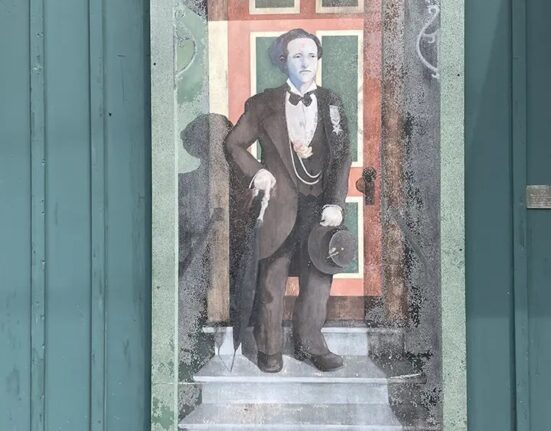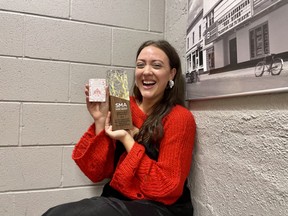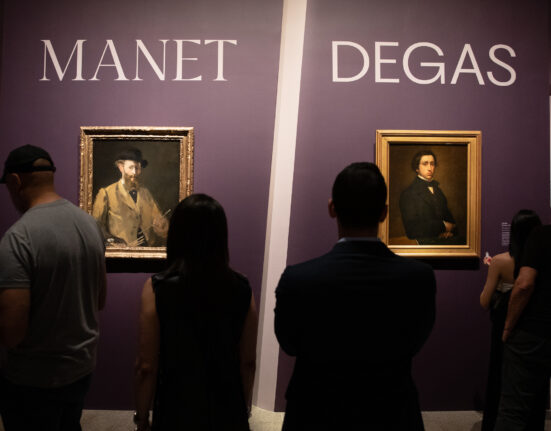
Back when the hip-hop record producer L’Orange was growing up off Greenville Loop Road and going to high school and college in Wilmington, music was already his thing.
He’d dig through stacks of vinyl at Gravity Records, back when the shop was on Kerr Avenue instead of Castle Street, and he’d enter his musical creations into “beat battles” at the old 16 Taps music venue, where Bourgie Nights is today. When L’Orange was at the University of North Carolina Wilmington he met the rapper Solemn Brigham, and their musical partnership in the well-regarded underground hip-hop duo Marlowe persists to this day.
Having toured Europe multiple times with Marlowe, and with nearly a quarter-million listeners for his music on Spotify each month, L’Orange, now based in Asheville, has already gotten his music on the world stage. This past summer, however, he decided to take things to the next level by lauching his own record label, Old Soul Music.
“What made me want to do my own thing,” he said, was seeing many artists having to choose between making hard choices about compromising their creativity when signed to a label, or basically going fully independent, which involves tough tasks like distributing their music themselves.
“I’ve seen the emotional toll it takes on artists: being forced to view music as a job, to compromise, release music when they don’t want to. That takes the agency away from artists,” L’Orange said. “I thought there had to be a third option, where artists could release music independently, but not alone.”
The Old Soul roster already has more than a dozen signed artists from around the United States (New York hip-hop duo Brasstracks, L.A. rapper Blu, Atlanta beatmaker STLNDRMS) and the world, including Kenyan hip-hop artist Roy Rutto and French beatmaker ProleteR. That number will soon climb to close to two dozen, L’Orange said.
In addition to L’Orange, the label also has at least two other Wilmington connections, starting with his businesses partner and Old Soul’s chief operating officer, Dylan Hubbard, who L’Orange met while attending high school in Wilmington (he didn’t want to say which high school).

The sole Wilmington artist on Old Soul is indie-folk singer and filmmaker Justin Lacy, who just released a spooky new single, “Khaki Cameraman,” with local singer Haley Heath.
When L’Orange lived in Wilmington he knew Lacy but they weren’t close friends, he said. Rather, he was attracted to Lacy’s singular sound.
“His music is so incredible and so unique, but his audience is very narrow,” L’Orange said.
He said he sees his role as a label owner as “galvanizing existing audiences” for artists like Lacy, wherever they exist around the world.
While Old Soul’s roster is primarily made up of hip-hop artists at the moment, L’Orange said he wants it to grow to be more diverse and “comprehensive,” both musically and culturally, representing such genres as pop, folk, electronic and more. He said he’s close to signing soul artists from Nigeria, South Africa Kenya and Zimbabwe, adding that the continent of Africa has been producing “so much incredible music, and for years it’s been marginalized and put in this box of Afrobeats,” something he’d like to help change.
It’s a long way from where he was when L’Orange, 31, whose given name is Austin Hart, graduated from UNCW over a decade ago, moving to Asheville to work for a country music label.
“I was working 80 hours a week for about three years,” he said. “It was really brutal, but it taught me a lot about music, and the industry.”
From there he moved to Seattle where his debut album, “The Mad Writer,” got him signed to Mello Music Group. He ended up also going to work for Mello, alongside founder Michael Tolle, and had his hand in releasing well over 100 albums over the course of a decade.
“It’s a role I didn’t talk about a lot,” he said, partly because he was focused on marketing himself as a producer and creator. “But I’ve had quite a lot of experience in the music industry.”

He said “a common misperception is that the music industry is evil or greedy. From what I’ve seen, that’s not the truth.”
Rather, the problem as he sees it is “the way these labels are built. They’re protecting their businesses model.”
L’Orange has had quite a bit of success as an artist, and is known for building songs the old-school way, writing beats and then pairing them with samples of jazz, soul and other genres, all of it culled from obscure vinyl records. Often, he’ll insert snippets of dialogue grabbed from what sound like black-and-white movies or old radio shows.
His music, and the songs he’s made with Brigham in Marlowe, have been featured in TV shows, video games (“NBA 2K22,” “Fortnite”) and on commercials for such well-known brands as Gatorade and 7-Eleven stores.
Earlier this year, L’Orange was featured in a documentary, “The Mad Writer,” that screened at the Slamdance Film Festival and focused on his struggles with hearing loss. (L’Orange is deaf in one ear.)
As he moves forward with Old Soul Music, L’Orange said he wants to be part of forging a new way to support artists, tailoring his approach with each one. Some artists want to know all of the ins and outs of the business, he said, while others are more purely creative.
“It took me a while to realize that most artists don’t like this side of the buisiness as much as I do,” he said. He gets the idea that “learning more about streaming isn’t going to help you be more creative. I mean, no one becomes an artist in order to master the Spotify algorithim.”
He’s all about “helping musicians go from being creative to being able to build up something” they can see a return from, whether it’s by helping them increase their streams and sales, or helping them land marketing deals.
As an artist himself, “I want to be able to support artists and their visions,” he said, “without asking them to sign away their masters.”






